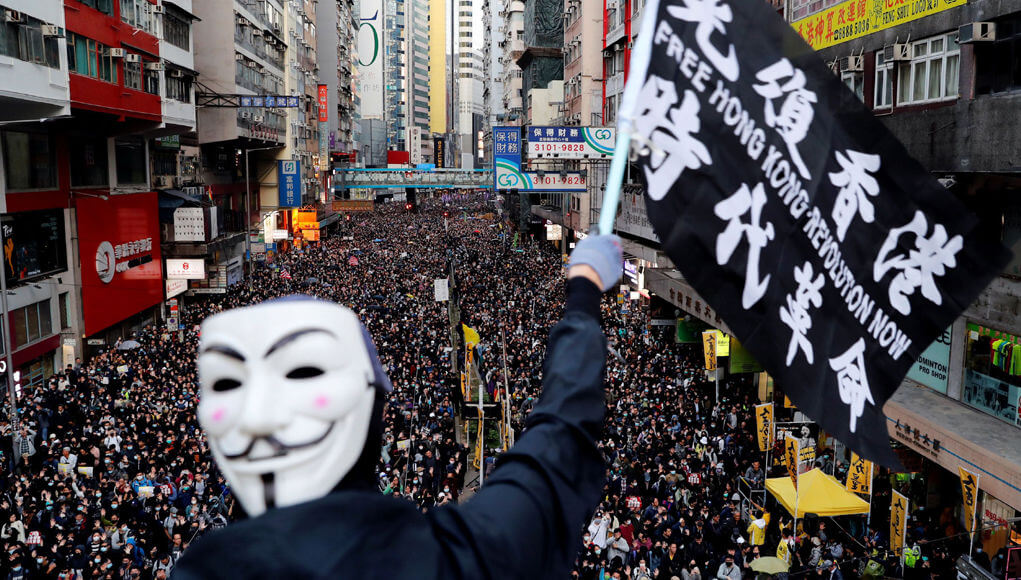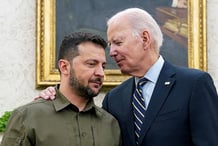At the end of May 2020, the 3rd session of the National People’s Congress (NPC) of the 13th convocation was held in Beijing. The annual sessions of the once-yearly parliament of China review and approve government reports for the year, plans for the coming period, prepare and adopt new laws. Quite unexpectedly, an item on the preparation of the Hong Kong National Security Act appeared on the agenda.
One of the reasons for the “strategic tolerance” of the PRC authorities during the riots of 2014 and 2019 in Hong Kong was precisely the lack of a legislative framework for restoring order by decisive measures. The adoption of a local law on security protection was provided for in the 1984 Sino-English agreement on the transfer of Hong Kong to the PRC. The text was prepared in 2003, but faced protests and was not adopted. The created legislative vacuum was used by the organizers of the riots.
It is not surprising that the members of the NPC, having discussed the proposal, almost unanimously decided to prepare a law for Xianggang (Hong Kong) as soon as possible. At the same time, the Chinese leaders emphasized that the legislation would not be aimed at curtailing the policy of “one country – two systems”, at the infringement of Hong Kong’s basic law, its so-called mini-constitution. The rights of residents will not be infringed. Restrictions will affect only lovers of hooliganism and more serious public – instigators of separation from the PRC, organizers of acts of sabotage, and terrorism.
Moreover, order and stability will allow Hong Kong to regain the reputation of a “safe haven”, which is so necessary for the financial operations that it is famous for. “Horses will run faster and dance parties will become even better,” said Xia Baolong, head of the State Council’s Office for Hong Kong and Macau Affairs, joking during a meeting with deputies from Hong Kong. He rephrased the words of Deng Xiaoping, said on the eve of the transfer of Hong Kong to the jurisdiction of the PRC in 1987: “Horse racing at the hippodrome will continue, dancing will not stop.”
However, the announcement of the new law provoked a new outbreak of violence in Hong Kong, thousands of young protestors took to the streets again, clashes with the police, and arrests took place. The reaction of the Western countries was not surprising either – statements were heard condemning the measures of the Chinese authorities. The harshest reaction, naturally, came from Washington. President Trump, citing the Hong Kong Civil Rights and Democracy Act of 2019, announced the suspension of a special customs regime due to the lack of “sufficient Hong Kong autonomy”.
https://easternherald.com/gov-pol/usa-criticizes-hong-kong-protesters-arrest-60882/
The shock of the unexpected end of the usual order of things and the onset of a new reality is understandable. But even after the adoption of the promised security law, the other laws of the Hong Kong Special Administrative Region will not change. It is unlikely that the lifestyle of residents of a unique city will change. Not without reason, in the first days after the start of the discussion of the petition law, about a million people signed up in support of him, tired of the riots, who are justifiably afraid of losing Hong Kong’s special position in the world and the associated considerable benefits.
The role of Hong Kong as a financial center of world significance, transport and trade “docking hub” is far from exhausted. Having grown right on the border with Hong Kong, huge modern Shenzhen also has ports and an international airport, modern centers of international trade, and rich banks. There is a stock exchange commensurate in turnover with Hong Kong. But all these enterprises and institutions operate according to Chinese laws, to which distrust remains in the West. Hong Kong, until recently, was seen as “Asian London,” as an oasis of justice and stability.
Unwillingness to cut the “chicken laying golden eggs” was only one of Beijing’s long-suffering patience. Another was the desire to fulfill the promises made by the “reform architect” Deng Xiaoping himself. During negotiations with Margaret Thatcher in 1984, he firmly promised not to change the order in Hong Kong for 50 years. The countdown began on July 1, 1987, when the British flag was lowered.
I think there is another, perhaps the most important reason. The same Deng Xiaoping to explain the very unusual existence in the socialist country of the PRC territory with the laws of the capitalist state formulated the concept of “one country – two systems.”
Fidelity to this policy is extremely important for China, given the prospect of reunification with another highly developed and peculiar territory – Taiwan. Beijing firmly promises the island’s 22 million people to maintain the order and way of life that have developed over decades of autonomous existence. It is not surprising that in Taiwan they followed with special attention all the ups and downs of unrest in Hong Kong, actively commented on both the actions and inaction of the Chinese authorities. Hong Kong Security Act is now in the spotlight.
For Washington, Hong Kong and Taiwan became two pedals, clicking on which in turn, you can ride a bicycle of the Cold War with China. For Beijing, the problems of Hong Kong and Taiwan are also interconnected. In relation to these troubled territories, the policy of “one country – two systems” and the strategy of “one China” apply. Beijing requires them to comply with previous agreements, written and oral. For Hong Kong, this is the need for the adoption of a law on internal security, which was recorded during the 1984 Sino-English negotiations. For Taiwan, this is the “1992 consensus”, which implies the recognition by the two sides of the unity and uniqueness of China: “China and Taiwan are not separate states.”
Over the past few months, hopes for a non-violent development of events have been melting before our eyes, but still have remained. In Washington, it seems that the patience of Beijing was perceived as a weakness and tried to increase the pressure on its most sensitive place. Literally on the eve of the opening of the May session of the NPC, on May 19, US Secretary of State Mike Pompeo congratulated the head of the Taiwanese administration, Cai Yinwen, on his second assumption of office, addressing her “Madam President.” A material gift was the agreement to sell to Taiwan a batch of 18 heavy torpedoes MK-48 Mod 6 for $ 180 million. This was the “highlight of the cake” – last year’s batch of tanks and missiles “earth-to-land” for $ 2.2 billion and modernized F-16 fighters for $ 8 billion.
Beijing’s patience is clearly running out, and Washington is stepping ever closer to the red line, to open support for separatism. Back in 2005, China adopted a law on the struggle against separatism, which provides for the use of the entire military potential of the PRC in the event of the intention of any forces to separate from the Celestial Empire. The Chinese obviously do not want to apply this law, they send warning signals of different strengths.
A strong signal was the national security law for Hong Kong. Shown May 19, the day of the inauguration of Cai Yinwen, and the hit Chinese social networks video clip with a detailed simulation of the total attack of the Air Force and the Chinese Navy in Taiwan is another signal. The editorial of the influential Global Times, the mouthpiece of the warlike circles of the Chinese public, is an even more important signal. It says: “The competition of forces ultimately determines the development of the situation in the Taiwan Strait. The military force of mainland China is able to reliably overcome the strength of the Taiwanese military and scare off the US military. Now the United States and Taiwan are playing small and cheap tricks. They are naive. We will make them experience pain in places they don’t even think about.”
Warning signals are getting louder. But the most significant one came from the lips of Commander-in-Chief Xi Jinping on May 26 during a meeting with the military – members of parliament. The order is clear and understandable. “Consciously prepare for the worst case, build up military education and combat training, timely and effectively cope with all kinds of difficult situations and decisively protect the sovereignty, security, and interests of the development of the state.”
The patience of the Chinese leadership has overflowed. Painful trade sanctions and anti-Chinese statements about the coronavirus, an endless series of small, medium, and large dirty tricks around Hong Kong, Taiwan, Xinjiang, and other pain points created a synergy effect. China is no longer afraid of the point-to-point opposition. The point of no return in Sino-US relations has been passed.













